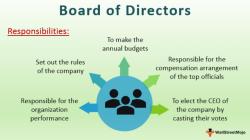How to writer a great business plan?
Writing a great business plan is essential for the success of your business. A well-crafted business plan serves as a roadmap, helps secure financing, and provides a clear vision for your company. Here are tips and strategies to help you create a compelling business plan:
1. Start with a Clear Executive Summary:
- Begin your business plan with a concise executive summary that highlights the key points of your plan. This should include your business's mission, vision, the problem it solves, your target market, and financial highlights.
2. Understand Your Audience:
- Consider who will be reading your business plan. Whether it's investors, lenders, or internal stakeholders, tailor the plan to address their specific needs and expectations.
3. Conduct Thorough Market Research:
- Gather comprehensive market research to understand your industry, competitors, and target market. This information will help you identify opportunities and threats.
4. Define Your Business and Offerings:
- Clearly articulate what your business does, what products or services you offer, and what sets you apart from competitors. Explain your value proposition.
5. Develop a Strong Business Model:
- Describe how your business will generate revenue and outline your pricing strategy. Be specific about your sales channels, distribution methods, and customer acquisition.
6. Create a Detailed Marketing Plan:
- Outline your marketing and sales strategies. Define your target audience, marketing channels, and advertising tactics. Explain how you plan to attract and retain customers.
7. Present a Solid Management Team:
- Introduce your management team and their qualifications. Highlight their relevant experience and expertise. Investors want to know they're investing in capable hands.
8. Provide Financial Projections:
- Include detailed financial projections, including income statements, balance sheets, cash flow statements, and a break-even analysis. Be realistic and conservative in your estimates.
9. Address Potential Risks:
- Acknowledge potential risks and challenges your business may face and outline strategies for mitigating them. This demonstrates your awareness and preparedness.
10. Set Clear Milestones and Goals:- Define measurable and achievable milestones and long-term goals. Investors want to see a clear path to profitability and growth.
11. Use Clear and Concise Language:- Write in a straightforward and clear manner. Avoid jargon and use language that anyone can understand, even if they're not experts in your industry.
12. Proofread and Edit:- Carefully proofread your business plan for errors in grammar, spelling, and formatting. Typos and mistakes can undermine your professionalism.
13. Seek Feedback:- Before finalizing your plan, have others review it. Seek feedback from mentors, advisors, or industry experts to get different perspectives and identify areas for improvement.
14. Keep it Concise:- While it's important to be thorough, avoid unnecessary verbosity. Keep your business plan concise and focused on the most critical information.
15. Update and Revise Regularly:- Your business plan is a dynamic document. Update it regularly to reflect changes in your business, market conditions, and goals.
Remember that your business plan should not only serve as a tool for external stakeholders but also as a guide for your own business decisions. It should be a living document that you revisit and adapt as your business evolves. A well-prepared business plan demonstrates your commitment, planning, and vision, which can inspire confidence in potential investors and partners.
Tips for Writing a Powerful and Effective Business Plan
A business plan is a roadmap for your business. It outlines your goals, strategies, and how you plan to achieve them. A well-written business plan can help you to attract investors, partners, and customers. It can also help you to manage your business more effectively.
Here are some tips for writing a powerful and effective business plan:
- Be clear and concise. Your business plan should be easy to read and understand. Avoid using jargon or technical language.
- Be specific and realistic. Your business goals should be specific, measurable, achievable, relevant, and time-bound. Your financial projections should be realistic and based on sound assumptions.
- Be thorough. Your business plan should cover all of the key aspects of your business, including your products or services, target market, marketing strategy, financial projections, and management team.
- Get feedback. Once you have written a draft of your business plan, get feedback from other people, such as mentors, advisors, or potential investors.
Business Plan Structure and Key Components
A typical business plan includes the following sections:
- Executive summary: The executive summary is a one-page overview of your business plan. It should highlight your key business goals, strategies, and financial projections.
- Company description: The company description provides more detail about your business, including your products or services, target market, and competitive landscape.
- Products or services: This section describes your products or services in more detail, including their features, benefits, and pricing.
- Target market: This section describes your target market, including their demographics, needs, and wants.
- Marketing strategy: This section outlines how you plan to reach and market your products or services to your target market.
- Management team: This section introduces your management team and highlights their experience and qualifications.
- Financial projections: This section includes your financial projections for the next three to five years.
Perfecting the Executive Summary and Financials of a Plan
The executive summary and financials are two of the most important sections of your business plan. The executive summary is your chance to make a first impression on potential investors and partners. The financials are essential for demonstrating the viability of your business model.
Here are some tips for perfecting the executive summary and financials of your business plan:
- Executive summary: Be sure to highlight your key business goals, strategies, and financial projections in the executive summary. You should also clearly state why you are seeking funding and how you plan to use the funds.
- Financials: Your financial projections should be realistic and based on sound assumptions. Be sure to include a profit and loss statement, balance sheet, and cash flow statement. You may also want to include sensitivity analysis to show how your financial projections change under different scenarios.
By following these tips, you can write a powerful and effective business plan that will help you to achieve your business goals.












